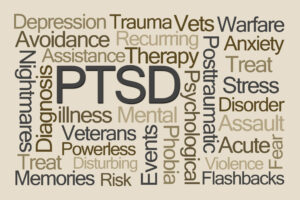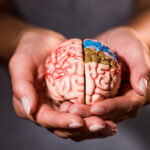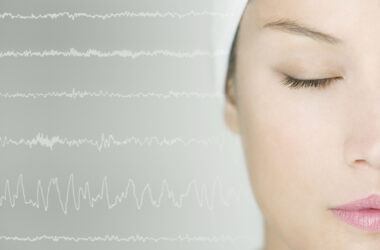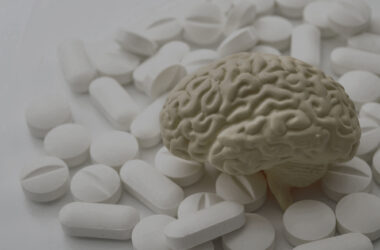A mental health disorder that’s found in people who have experienced traumatic events, post-traumatic stress disorder (PTSD) can make life quite difficult.
There are many aspects of PTSD that are unique and separate the disorder from mental health complications like depression and anxiety.
Although there are various mental health disorders that can play a role in the unforgiving nature of PTSD, its cause, diagnosis, and treatment are rather specific.
The occurrence of PTSD can affect anyone, even if it became widely known due to its prevalence in war veterans.
In this article, you’ll learn about multiple aspects of PTSD and how it affects sufferers of the mental health condition.
An Overview of PTSD
Traumatic events in life can affect people in many different ways. Some experiences can pose a more mild risk to a person’s health than others, but some traumatic events can change people forever.
A few examples of traumatic events can include:
- Natural disasters
- Life-threatening situations
- Sexual assault
- Car accidents
- Physical abuse
Although some of these events may not affect certain people, it’s known that even a single encounter with such events can change people in the long term.
Specific reactions are common when encountering a traumatic event, and the body may respond with a “fight or flight” response or simply general fear.
It’s possible to naturally recover from traumatic events, but PTSD can easily be developed, but more challenging to treat and manage the disorder. Sensations related to PTSD are a sense of fear or exacerbated stress.
Many of the triggers related to PTSD can be found in everyday interactions, which can feel relatively exhausting for sufferers.


Symptoms and Risk Factors
The symptoms experienced with PTSD aren’t universal. Some individuals may deal with a long list of symptoms that can be difficult to overcome, while others might only have a few.
Nevertheless, many of the symptoms PTSD is known for can be much more debilitating than general stress, fear, depression, and other similar symptoms.
Common symptoms associated with active PTSD include:
- Intense nightmares
- Erratic physical reactions
- Flashbacks
- Avoidance of triggers
- Heightened arousal
- Negative changes in mood
- Reactivity
The impacts of PTSD can affect many facets of a person’s life. Considering the struggles that come with the mental health disorder, PTSD can make it difficult to manage relationships, emotions, and general well-being.
Ongoing research has set a spotlight on consistent risk factors that are found in many circumstances. You can find some common risk factors regarding PTSD in the list below.
- Personal vulnerability
- Lack of social support
- Severity and duration of trauma
- Prior experiences with trauma
Since PTSD is such a complex mental health disorder, experts are still learning about its nuances.
However, known factors that are involved pertain to genetics, environmental, biological, and psychological factors.
By understanding the risk factors and causes of PTSD, doctors can develop effective treatment plans for many different types of patients.
Mental health disorders can be tricky as they can affect people in many unique and surprising ways.
This poses a challenge for medical professionals. For example, whereas a treatment works for one patient, it may not work at all for the next.
How Does Treatment of PTSD Work?
Doctors will suggest a variety of treatment methods for those dealing with PTSD.
Most general treatments for PTSD include cognitive behavioral therapy (CBT), medication, or eye movement sensitization and reprocessing (EMDR).
You can also help prevent the effects of PTSD with the help of early intervention and consistent support.
PTSD is a mental disorder that can affect people of essentially all age groups, and it’s common to utilize a combination of therapies and medication for the best outcome.
The effectiveness of such treatments should be discussed with a doctor to help determine the best course of action for the needs of each patient.
Another aspect called resilience factors can help prevent the development of PTSD, and these include support from loved ones, using coping strategies, and managing emotions.
Here are a few other common treatment solutions utilized for PTSD:
- Several different talk therapies
- Psychotherapy
- Antidepressants
- Several medications that focus on sleep, anger, stress, and more
To effectively tackle the symptoms brought on by PTSD, patients generally have to face many different treatment options.
The effects of PTSD can be pretty aggressive, and some treatments are required in the long term for any signs of positive change to occur.
Preventing the Occurrence of PTSD
With a little focus on prevention methods, people can ward off the debilitating effects of post-traumatic stress disorder.
This includes a list of considerations that demand consistent effort for them to be helpful on a daily basis.
If you have experienced a traumatic event, make sure to keep these points in mind:
- Practice positive thinking
- Try to incorporate positive emotions and laughter
- Ask for assistance from people who care about you
- Speak about the traumatic event with a therapist
- Stay in consistent contact with your support system
- Help other individuals going through a similar situation
Actively working against PTSD can help you fight off the many known effects that come with PTSD.
Treatments and prevention methods for mental health disorders are more than adequate for many sufferers, but even with such help, PTSD could be a lifelong struggle for some people.
The Bottom Line
Post-traumatic stress disorder can occur from a wide variety of traumatic events.
When you consider that each person handles trauma differently, PTSD can arise from mild to more severe life events.
In some circumstances, people simply choose to live with PTSD, but no one should have to live this way.
Seeking proper treatment is the best way to tackle PTSD and work toward a more positive and normal experience with everyday life.










